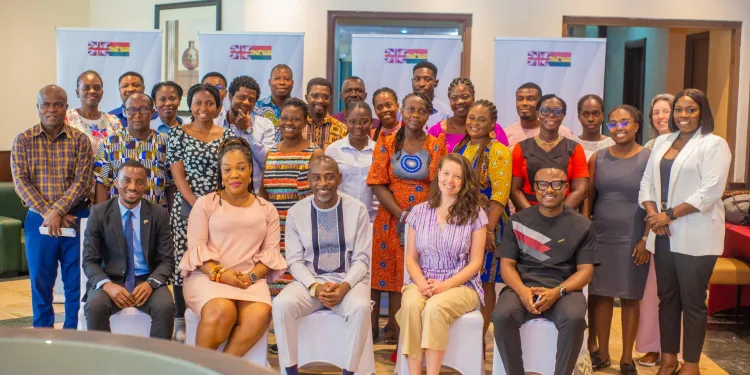Reporting on Science and Technology: Journalists in Ghana get training
“We need a collective, global effort to build an informed society where science and technology serve the greater good,”
- Advertisement -
A Development Director at the British High Commission in Accra, Richard Sandall, has urged journalists in Ghana to strive for excellence in Science, Technology and Innovation (STI) reportage, knowing that their work has the power to shape the future.
He made the call on Monday, during an address to open a five-day residential capacity building training workshop for selected media professionals in Accra.
- Advertisement -
The workshop dubbed “UK-Ghana Science, Technology and Innovation Strategy – Capacity Building for Excellence in STI” forms part of the government’s Media-Capacity Enhancement Programme. It is being organised by the British High Commission in collaboration with the Ministry of Environment, Science, Technology and Innovation (MESTI), and the Ministry of Information (MoI).
- Advertisement -
About 20 journalists with a shared commitment to enhance their capabilities in STI reportage have been selected from about a dozen media houses to take part in the 4-day workshop.
Sandall said in an era where advancements are now shaping the very fabric of society, the role of the media in accurately conveying these developments is paramount. He said even though the Media Capacity Enhancement Programme has been running for some time now, there has not yet been a focus on STI.
“The UK is a Science, Technology, and Innovation superpower. Science and technology underpin our ambitions both at home and abroad,” he said.
“Most of us don’t read many scientific papers as they are published or attend learned symposia. There is often a big barrier between what scientists know and getting that information to the people who can use it – decision makers, businesses, activists or teachers. That barrier is like a vacuum where information should be,” he added.
He reiterated that where there was a knowledge vacuum, misinformation thrived.
“So, society needs you. That is why perhaps you become journalists. There are few more important stories than how our lives are fundamentally changing, and few greater responsibilities than reporting on it,” he stated.
- Advertisement -
“Your task is not just reporting on scientific and technological breakthroughs but also translating the significance and impact for the broader public.”
He said the challenges journalists face were real; adding that it was not just about understanding the words, and ideas, although that helped and that it was about seeing what the rapid evolving of technology and innovation mean for the world and finding a way to have that make sense.
“These challenges come with immense opportunities. To make the most of them will demand curiosity, critical thinking, ambition, and responsibility.”
He appealed to journalists to continue to uphold the principles of accuracy, integrity, and accessibility.
“We need a collective, global effort to build an informed society where science and technology serve the greater good,” he said.
He urged the participants to seize the opportunity and embark on a journey of continuous learning and improvement.
Professor Kwamena Kwansah-Aidoo, Vice Chancellor of the University of the Media Art, Media and Communication (UIMAC) and Chairman of the Working Group, said the rare collaboration between the British High Commission, MESTI and MOI for the workshop, underscored the recognition of pressing challenges within STI reporting, and the need for concerted efforts and comprehensive training to address them.
“The challenges we face in science, technology, and innovation reporting are multifaceted and demand strategic interventions.”
Source: GNA
- Advertisement -


